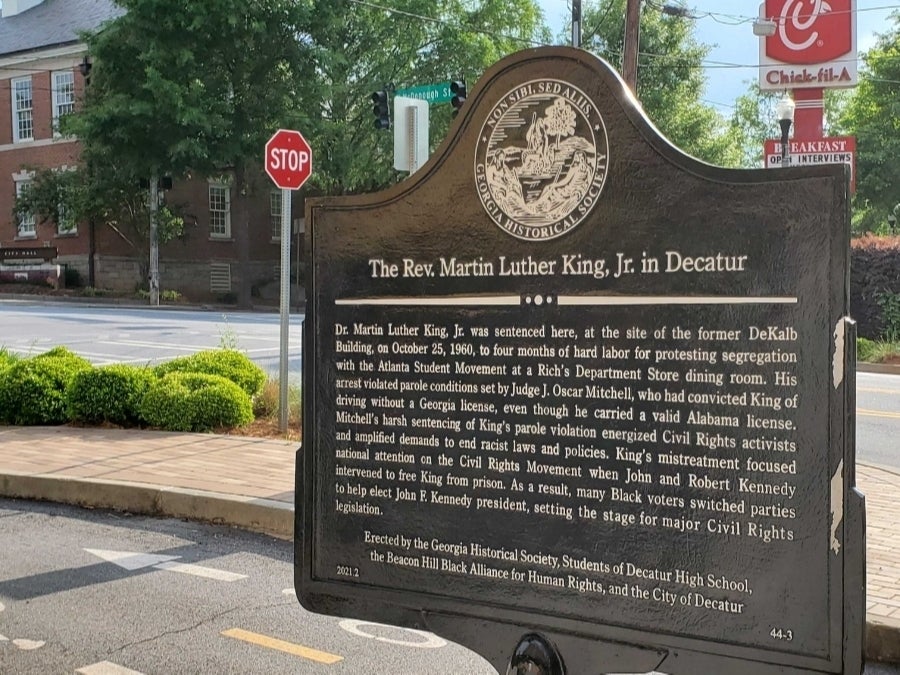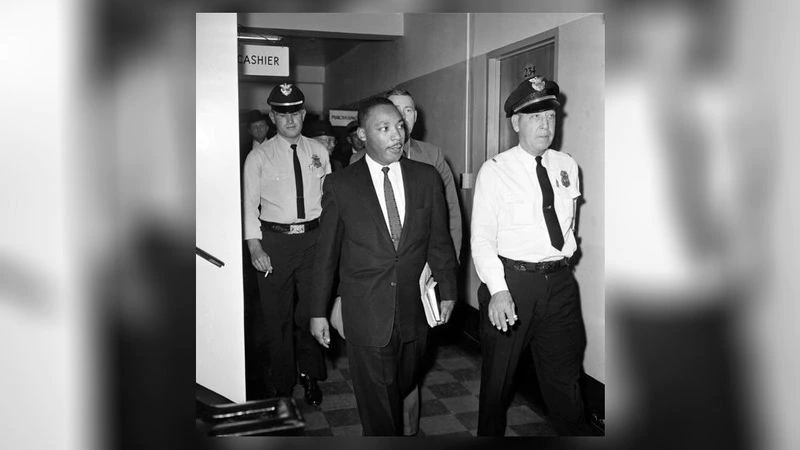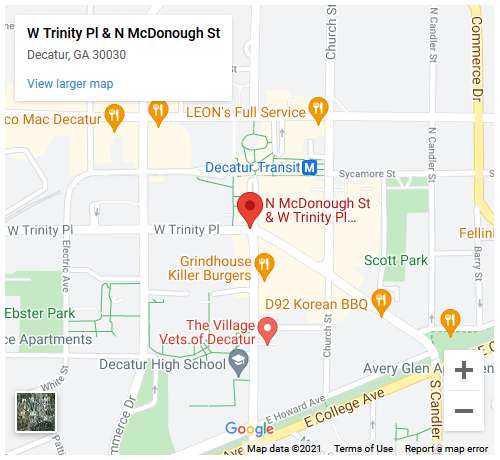
This is a photo of the MLK marker that was recently erected in downtown Decatur.
By Zachary Hansen
A historic marker was unveiled this weekend in downtown Decatur to memorialize one of the lesser-known chapters of Martin Luther King Jr.’s activism.
The marker, installed by the Georgia Historical Society, commemorates MLK’s arrest, “chain gang” sentencing and eventual release — all of which took place in Decatur more than 60 years ago. It’s the work of a group of Decatur High School student activists who call themselves the “Commemorating King” team.
“I think that being a student who has lived in Decatur for more than 10 years, knowing the history of your city speaks volumes in how your city has changed overall,” Daxton Pettus, one of the students said last year when the marker was approved for installation. “Decatur went from being known as (Ku Klux) Klan county all the way to removing a Confederate monument from Decatur Square.”
The MLK marker, located at the corner of N. McDonough Street and W. Trinity Place, is mere steps away from the former site of a 30-foot-tall obelisk Confederate moment, which stood in Decatur Square for 112 years before it was removed last summer.
The marker’s new home is also the location of the since-demolished courtroom where King was held and sentenced. On Oct. 19, 1960, King was among 79 people arrested during mass sit-in demonstrations to protest segregated eating places in Atlanta restaurants, according to news accounts, but everyone was released except for him.
The civil rights leader was technically on probation in DeKalb County due to a minor traffic violation from months earlier, when he was charged with driving without a license. Despite having a valid Alabama license, he pleaded guilty and paid a $25 fine, but a judge gave him a year of probation.

In this Oct. 25, 1960 AP file photo, Martin Luther King Jr. leaves court in Decatur after being given a four-month sentence related to a recent arrest at a sit-in. (AP Photo, File)
King was ultimately sentenced to four months of hard labor in a “Georgia public works camp,” according to an Associated Press story from the time.
The incident grabbed national attention, including the ire of then-presidential candidate John F. Kennedy and his brother Robert. Days before the 1960 presidential election, which JFK won, the two appealed to Mitchell and argued that bail cannot be denied for someone facing a misdemeanor sentence. That led to King being released on bond.
Through an online fundraiser, the student group raised $5,000 to erect the marker. The Beacon Hill Black Alliance for Human Rights, a local community activism organization, and the City of Decatur Commission both helped sponsor the students’ proposal, which is now a reality.
The marker’s text: “Dr. Martin Luther King, Jr. was sentenced here, at the site of the former DeKalb Building, on October 25, 1960, to four months of hard labor for protesting segregation with the Atlanta Student Movement at a Rich’s Department Store dining room. His arrest violated parole conditions set by Judge J. Oscar Mitchell, who had convicted King of driving without a Georgia license, even though he carried a valid Alabama license. Mitchell’s harsh sentencing of King’s parole violation energized Civil Rights activists and amplified demands to end racist laws and policies. King’s mistreatment focused national attention on the Civil Rights Movement when John and Robert Kennedy intervened to free King from prison. As a result, many Black voters switched parties to help elect John F. Kennedy president, setting the stage for major Civil Rights legislation.”
Read the original story on AJC.com.












